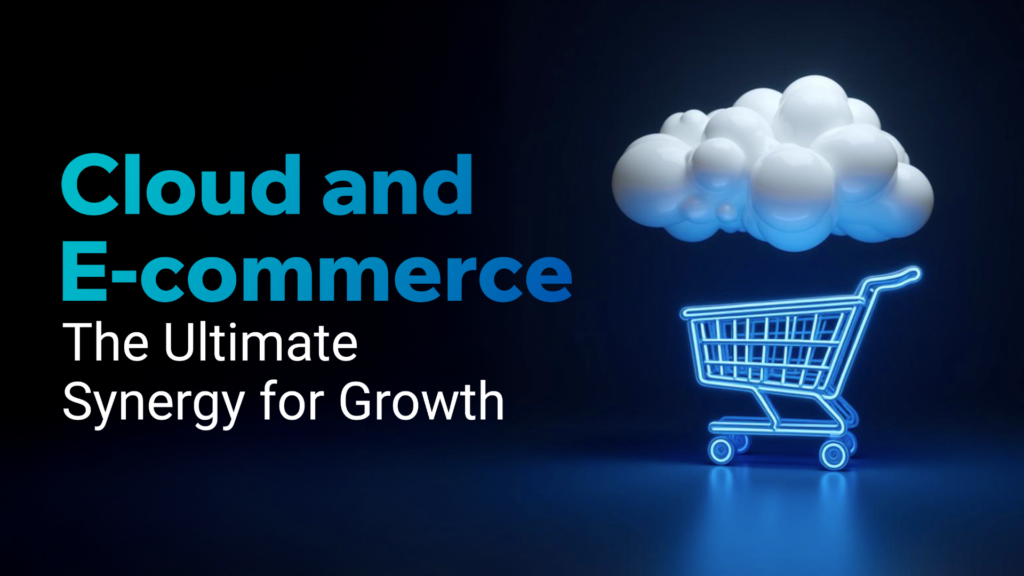
The fusion of cloud computing and e-commerce has revolutionized how businesses operate, innovate, and engage with customers. As online shopping dominates global markets, the cloud has become indispensable in managing the challenges and opportunities of e-commerce. With its unparalleled ability to offer scalability, cost-efficiency, and innovation, cloud computing empowers e-commerce businesses to thrive in a highly competitive landscape.
Understanding Cloud Computing
What is Cloud Computing?
Cloud computing refers to delivering computing services—such as servers, storage, databases, networking, software, and analytics—over the internet, or “the cloud.” Instead of relying on local servers or personal devices, businesses access these resources on demand, offering unparalleled flexibility and efficiency.
Types of Cloud Models
- Public Cloud: Accessible to multiple organizations and hosted by third-party providers, it is cost-effective and scalable.
- Private Cloud: Tailored for single organizations, it ensures greater control and security.
- Hybrid Cloud: Combines public and private clouds, offering the best of both worlds.
E-commerce Landscape
How E-commerce Has Evolved
From simple online catalogs to dynamic marketplaces like Amazon and Alibaba, e-commerce has transformed drastically. Advanced technologies like AI, augmented reality, and big data analytics have reshaped how businesses interact with consumers.
Role of Technology in E-commerce
Technology drives every facet of e-commerce, from inventory management to customer engagement. The cloud, in particular, facilitates these advancements by offering the tools and infrastructure necessary for innovation.
Why Cloud is a Game-Changer for E-commerce
Scalability and Flexibility
Cloud computing enables e-commerce businesses to scale resources up or down based on demand, ensuring a seamless shopping experience during peak sales or slow periods.
成本效益
By eliminating the need for extensive physical infrastructure, the cloud significantly reduces operational costs. Businesses only pay for what they use, making it an economical choice.
增强安全性
Modern cloud platforms invest heavily in cybersecurity, offering features like encryption, two-factor authentication, and constant monitoring to protect sensitive customer and business data.
Benefits of Cloud for E-commerce
Improved Customer Experience
The cloud supports fast-loading websites, personalized shopping experiences, and robust customer support tools, enhancing satisfaction and loyalty.
Seamless Integration
Cloud platforms effortlessly integrate with other tools like CRM systems, marketing software, and analytics platforms, streamlining operations.
Data-Driven Decision Making
Real-time data collection and analysis enable businesses to make informed decisions, optimize marketing campaigns, and predict trends.
Cloud-Based Solutions for E-commerce
SaaS for E-commerce Platforms
Software-as-a-Service (SaaS) platforms like Shopify and BigCommerce provide ready-to-use e-commerce solutions, reducing development time and effort.
IaaS for Infrastructure
Infrastructure-as-a-Service (IaaS) offers virtualized computing resources, enabling businesses to build their platforms without heavy upfront investments.
PaaS for Development
Platform-as-a-Service (PaaS) supports developers by providing tools and environments to create custom e-commerce applications efficiently.
Cloud Security in E-commerce
Data Protection and Privacy
Cloud providers employ stringent security measures, such as encryption and access controls, to safeguard sensitive data from breaches and unauthorized access.
Secure Payment Processing
Cloud-based payment gateways comply with PCI DSS standards, ensuring transactions are secure and trustworthy.
Scalability and Performance
Handling Traffic Spikes
During events like Black Friday or flash sales, the cloud ensures websites can handle increased traffic without crashing or slowing down.
Ensuring Reliability
Cloud infrastructure is designed for high availability and minimal downtime, ensuring customers can shop anytime without interruptions.
Global Reach with Cloud
Multi-Regional Hosting
The cloud supports hosting across multiple regions, reducing latency and enhancing the shopping experience for customers worldwide.
Localization and Compliance
Cloud platforms offer tools for localizing content, currencies, and languages while adhering to regional regulations.
Reducing Operational Costs
Pay-as-You-Go Models
Businesses save money by only paying for the resources they use, eliminating waste and improving budgeting.
Avoiding Infrastructure Investments
Cloud eliminates the need for expensive hardware, reducing capital expenditure and maintenance costs.



